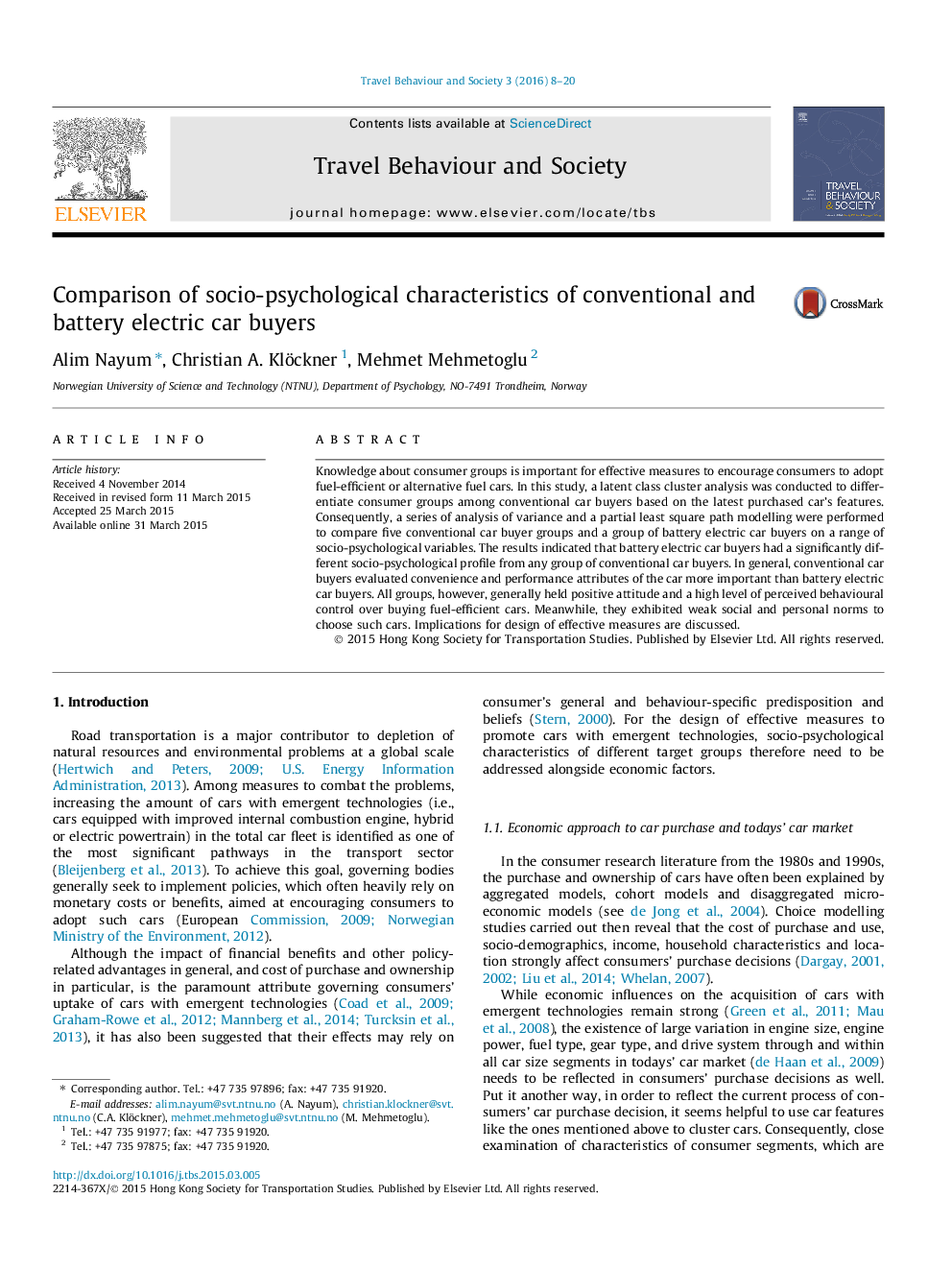| کد مقاله | کد نشریه | سال انتشار | مقاله انگلیسی | نسخه تمام متن |
|---|---|---|---|---|
| 141320 | 162854 | 2016 | 13 صفحه PDF | دانلود رایگان |
Knowledge about consumer groups is important for effective measures to encourage consumers to adopt fuel-efficient or alternative fuel cars. In this study, a latent class cluster analysis was conducted to differentiate consumer groups among conventional car buyers based on the latest purchased car’s features. Consequently, a series of analysis of variance and a partial least square path modelling were performed to compare five conventional car buyer groups and a group of battery electric car buyers on a range of socio-psychological variables. The results indicated that battery electric car buyers had a significantly different socio-psychological profile from any group of conventional car buyers. In general, conventional car buyers evaluated convenience and performance attributes of the car more important than battery electric car buyers. All groups, however, generally held positive attitude and a high level of perceived behavioural control over buying fuel-efficient cars. Meanwhile, they exhibited weak social and personal norms to choose such cars. Implications for design of effective measures are discussed.
Journal: Travel Behaviour and Society - Volume 3, January 2016, Pages 8–20
